A terminal is opening at LAX for people willing to spend big to avoid the crowds. Here’s how it works

Officials estimate that the operator of LAX would earn about $34 million from the Private Suite during its 10-year lease period.
For all those celebrities and wealthy travelers who don’t want to wade through the morass of paparazzi and regular passengers, a security company is debuting a unique LAX terminal with an exclusive entrance, luxury suites, well-stocked refrigerators, private bathrooms and even daybeds.
The $22-million facility, called the Private Suite at Los Angeles International Airport, is the first terminal of its kind in the nation. In addition to the fancy fringes, terminal users get access to a dedicated team of security screeners before they are whisked to their plane in a shiny new BMW sedan.
But all that privacy and comfort comes at a steep price: a $7,500 annual membership plus $2,700 for each domestic flight or $3,000 for each international flight. The cost covers a posse of up to four people.
There’s the alternative of paying a fee to use the terminal for a single flight without buying a membership. That costs $3,500 for a domestic flight and $4,000 for an international flight, in each case accommodating up to three people.
The new terminal, which officially opens May 15, was built by Gavin de Becker & Associates, a security consulting firm, at no cost to taxpayers. The Los Angeles firm plans to generate $35 million in revenue for the airport over the next nine years from the terminal.
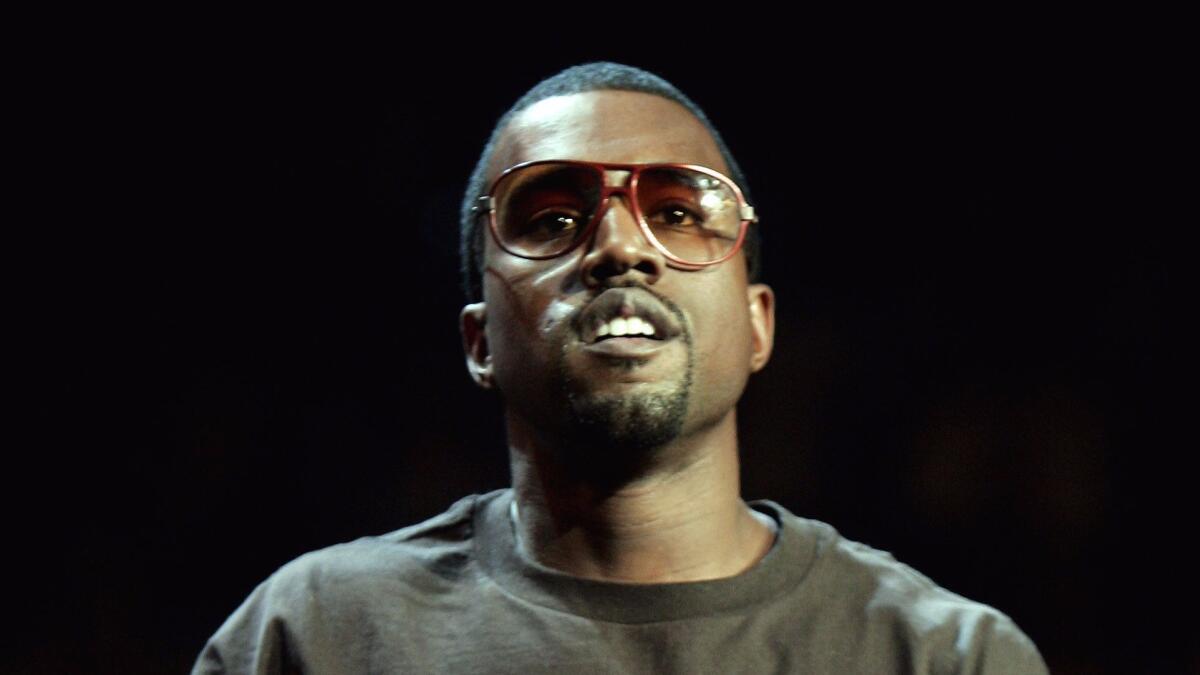
A terminal that keeps the paparazzi away
Terminal users must show identification to armed security guards when they drive up to the Private Suite entrance on West Imperial Highway. Tall gray gates make it nearly impossible for photographers and fans with selfie sticks to get up close to the rich, famous and well-connected.
Famous folk such as Kanye West and Russell Brand, who have both tangled with the paparazzi at LAX, would be able to zip into the new terminal and go directly to a private room where they can eat, drink and nap before it’s time to depart.
Gavin de Becker, chief executive of the firm that bears his name, estimates that only 10% of people using the service will be celebrities. Most members will be executives and others who want to get on and off a plane at LAX without causing a stir.
“Our members have an extremely predictable experience,” he said.
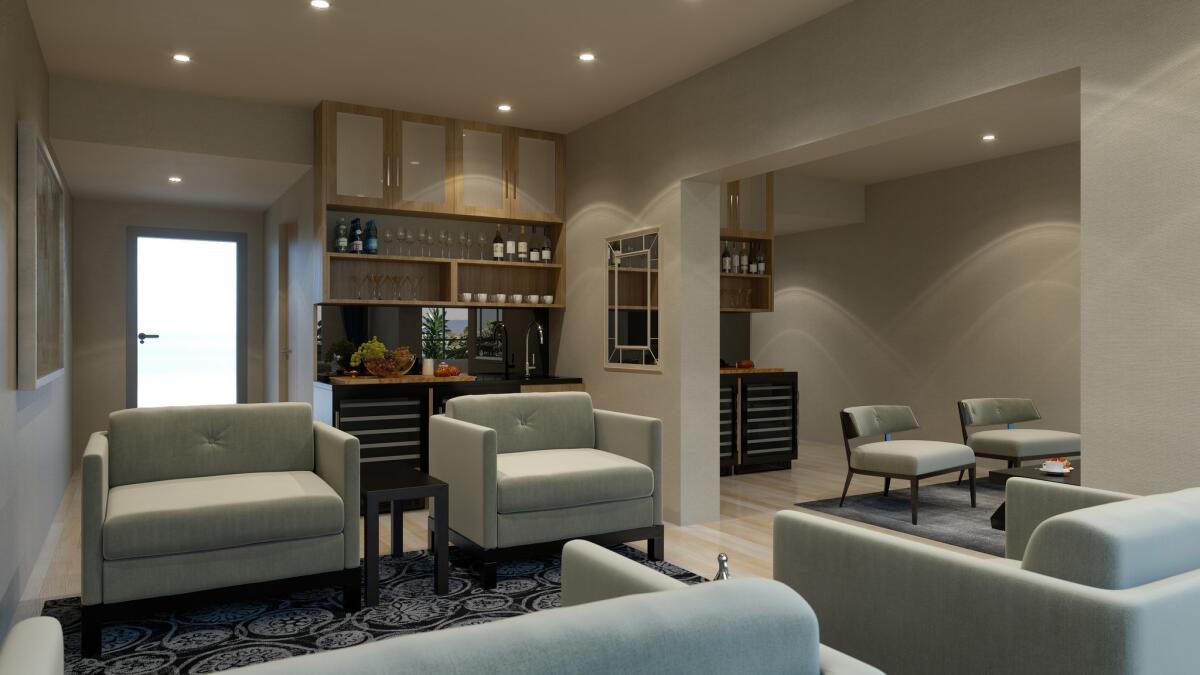
The amenities in the terminal
Inside the Private Suite, users are escorted to one of 13 private lounges. The suites vary in size and shape, some designed for families and others for smaller groups. The amenities include:
- a daybed
- a flat-screen TV
- a food pantry stocked with nuts, jelly beans, peanuts and chocolate-covered almonds, among other snacks
- a refrigerator stocked with soft drinks and alcoholic drinks
- a private bathroom stocked with deodorant, aspirin, chapstick and mouthwash
- a room for infants with a changing table and bottle warmer
- a room for Middle Eastern clients with prayer mats, a Koran and medjool dates
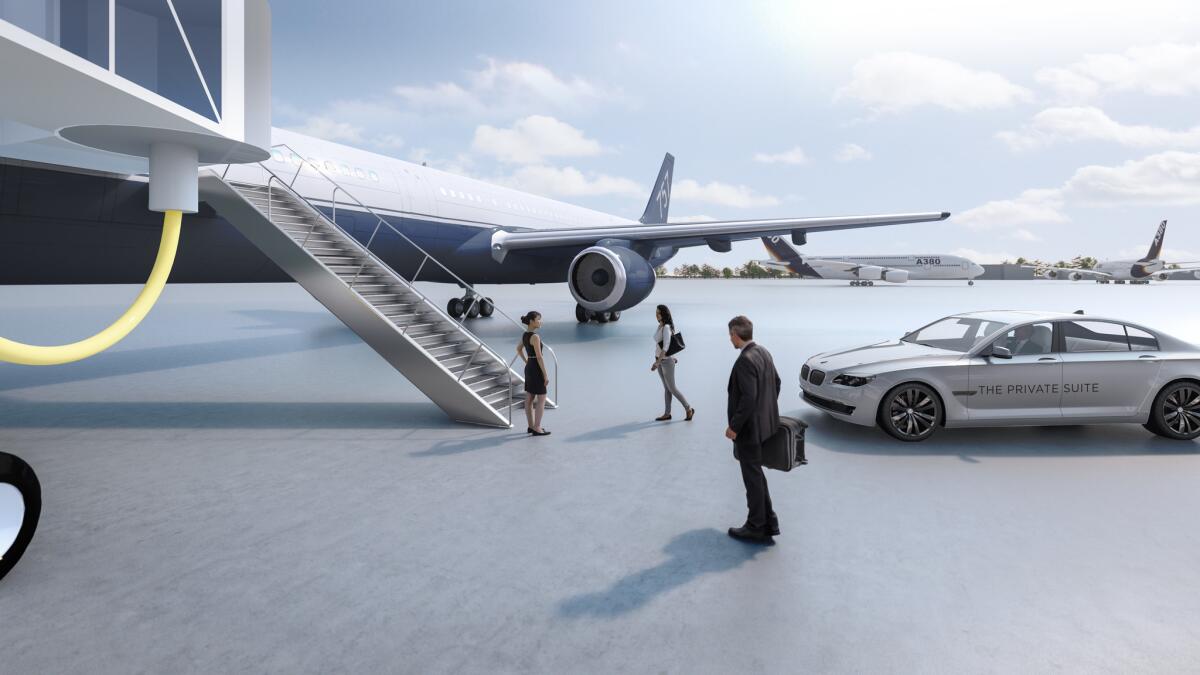
How celebs and high rollers get to the plane
The Private Suite includes two halls, one staffed by officers from the Transportation Security Administration. The TSA officers do not staff the facility all day. They shuttle to the facility only when travelers are scheduled to depart. The officers screen all passengers and their luggage before they board a plane.
International travelers are escorted into a separate hall, where they are cleared by U.S. Customs and Border Protection agents.
Once their flight is ready to take off, travelers are escorted to a BMW 7 series sedan and driven on service roads around the airport’s runways to their waiting plane.
To get on their plane, travelers can either board before the other passengers via a private staircase directly from the tarmac, or after the other passengers are already seated. In some cases, they will be able to use a separate staircase attached to the public jetway.
De Becker said having the BMW sedans driving around the runways to access private staircases on the tarmac won’t delay flight landings or departures at LAX. Airport spokesman Frederick Badliss said the new service would have “little to no effect” on air traffic because the BMWs will use the same service roads used by airport fleet vehicles.
De Becker said his business will not ask the airlines to delay any flights for customers of the Private Suite, who are urged to arrive at the private terminal just as early as they would for any other LAX flight.
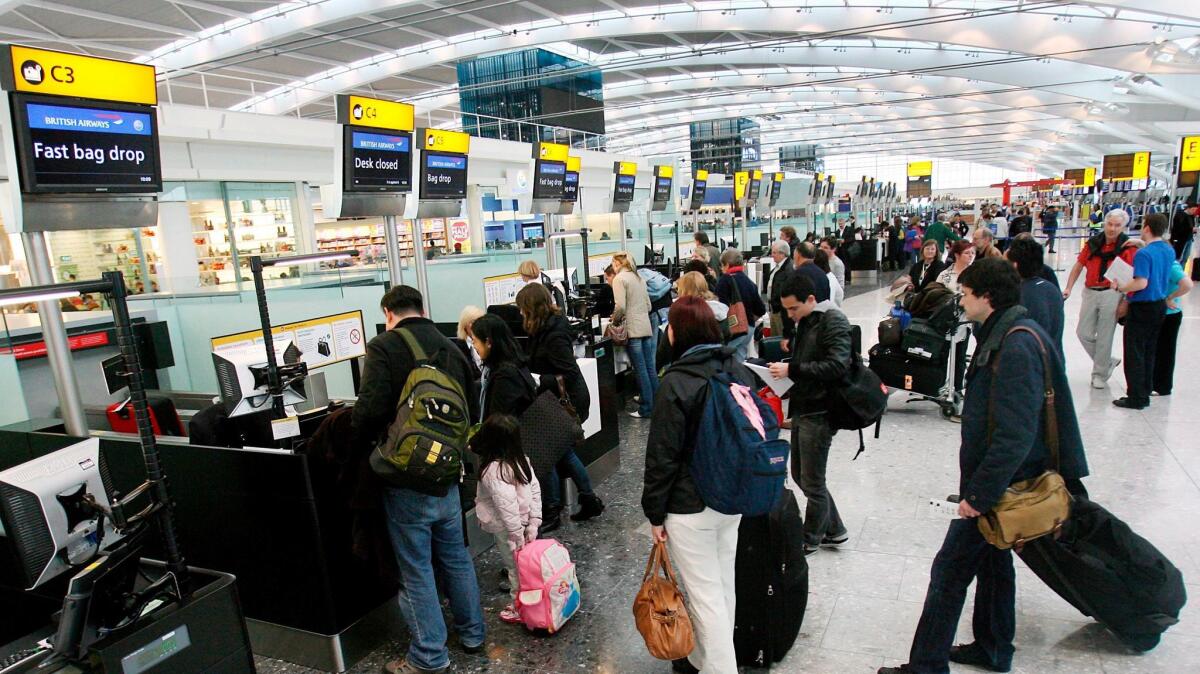
Heathrow Airport had the idea first
A facility at London’s Heathrow Airport that offers private high-end service for members was the inspiration for the Private Suite at LAX, de Becker said.
The service at Heathrow, originally dubbed Heathrow by Invitation but now called Heathrow VIP, was launched in 2013 and created to serve heads of state. It now has a price tag of about $3,500 for a group of up to three people and includes private lounges and chauffeur service directly from a passenger’s home.
Private terminals also can be found in Dubai, Munich and Zurich, among other airports. De Becker said he is in negotiations to open a private terminal at John F. Kennedy International Airport in New York.
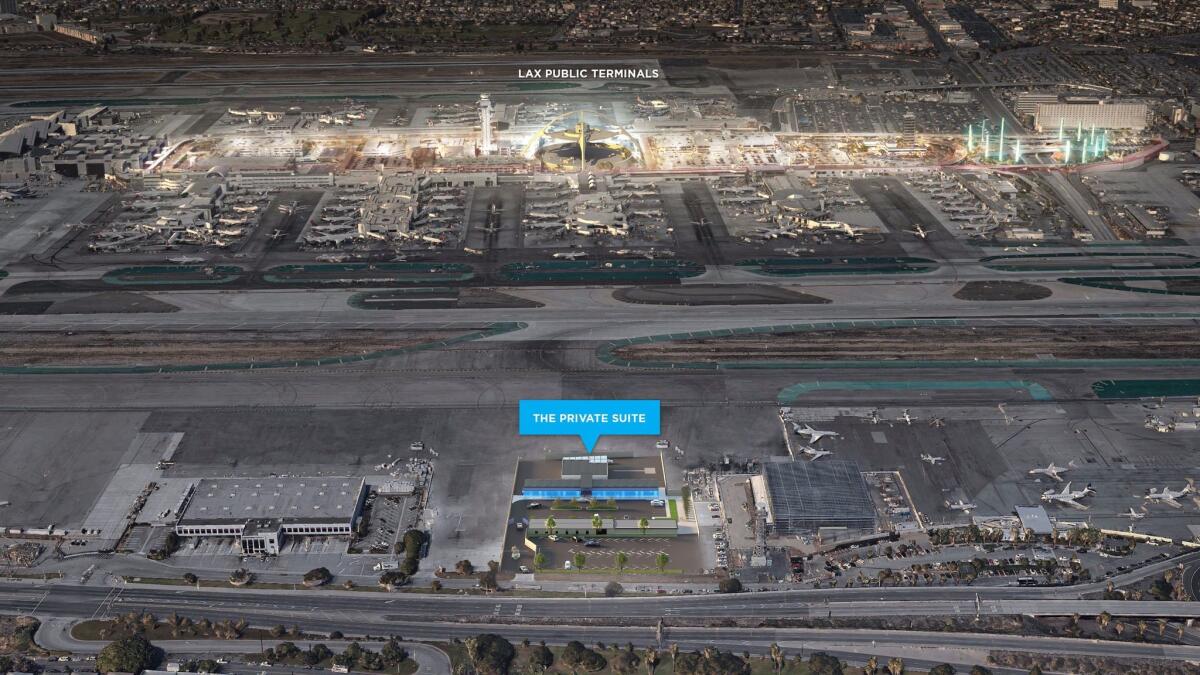
The finances behind the project
The LAX facility cost $22 million to build and de Becker’s firm pays the airport $250,000 a month in fees. Staffing for drivers, crews to escort guests through the terminal and stock the lounges with food and drinks costs an additional $3.7 million a year, he said.
On top of that, de Becker’s terminal must pay for the cost of the U.S. Customs and Border Protection agents who screen international fliers using the terminal. The TSA crews do not charge de Becker’s firm for their services.
The Private Suite already has 1,200 members but many memberships have been purchased by corporations for their executives or have been given to clients of de Becker’s security firm. De Becker said his goal is to serve an average of at least 25 groups of travelers a day.
The terminal benefits the airport, he said, because it reduces the potential for drama and delay from celebrities and other VIPs traipsing through the public terminals. Plus, de Becker said the Private Suite is used to screen international crews flying out of the airport, which frees up space in the Tom Bradley International Terminal to screen regular passengers.
Although another recession or a terrorist strike would be devastating to his business, de Becker said his company would be able to withstand a drop in travel demand.
“I’m optimistic that we will do well and the aviation industry will do well,” he said.
For more travel and tourism news, follow @hugomartin on Twitter.
Inside the business of entertainment
The Wide Shot brings you news, analysis and insights on everything from streaming wars to production — and what it all means for the future.
You may occasionally receive promotional content from the Los Angeles Times.








